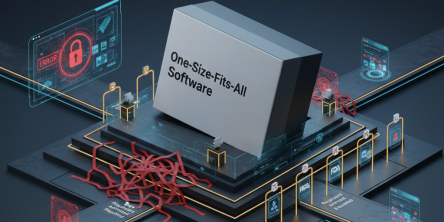Business Intelligence in Construction: Leading Benefits

Even people who are only vaguely familiar with the construction industry know that it involves collecting an ungodly amount of data. And what is that universally-used phrase that has been going around? Yep, data is the new oil, i.e., data offers immense value — especially to an industry that not only has access to tons of data but is also responsible for making all types of infrastructure. Suffice it to say that the construction industry can do with some insights, especially the ones gleaned from its treasure-trove of data. Thankfully, businesses in the industry have been quick to see the potential of data they hold and have, hence, endeavored to use it better. However, as technologies continue to grow and evolve at a rapid pace, the endeavors to use data might not bear intended results — at least not without the use of more modern tools, such as business intelligence.
Now, what is business intelligence? Well, it refers to technologies, tools, and more aimed at collecting, integrating, and analyzing data to achieve insights and drives better business decisions. Now, based on that, it becomes amply clear that there is immense potential for the combination of data and business intelligence. But what can this duo do in the context of the construction industry, you ask. Quite a bit — besides enabling the apparent data-driven business decisions, it can also be leveraged in ways one wouldn’t have imagined in a million years. So, business intelligence can help construction businesses determine which aspects of their operations offers scope for improvement or understand how they can scale their projects.
For your benefit, discussed below are some of the most crucial applications of BI in the construction world:
- Streamline data: Modern-day BI tools, when integrated with the business’ other enterprise systems, enables companies to collate their data from everywhere under a unified platform and that too in the desired or preferred format. And this, in turn, facilitates the generation of extensive reports, geographical data mapping, creative informatics, and so much more but without the hassle of manually dealing with an abundance of data.
- Optimize opportunities: When a company has access to real-time business intelligence, it gains access to an in-depth look into every single facet of the business and operations, including ongoing projects. Now, when one can closely monitor the progress of all such critical aspects of the company, they can correctly evaluate the business’ performance and foresee any issues. It can be used to introduce corrective measures before problems arise and leverage opportunities in time.
- Boost efficiency: One of the most common gripes of the construction industry when it comes to data is that it takes much time to gather data from the myriad required sources. And let us not forget that there is also a cost associated with the gathering of such data and the risk that the data in question may be outdated. But when you have business intelligence in the business’ arsenal, companies can access all such required data from a unified source while also making sure that all data is both accurate as well as updated.
- Accelerate business: As mentioned above, collecting data from multiple sources is typically a time-consuming process. Unfortunately, this lag in accessing data, in turn, can take quite a toll on the speed at which one can conduct business in general and make informed decisions. This challenge is dealt with effectively and productively with business intelligence since it enables access to real-time data from across the entire organization round the clock.
There is no denying that the construction industry is brimming with risks. But when you undertake business intelligence software development, you empower your organization with a state-of-the-art tool that can not only help you deal with uncertainty but also leverage unseen opportunities along the way.
Similar Articles
It is neither secret nor news that the mind-boggling pace of digital transformation around us has totally altered consumer expectations.
In the world of finance, speed and accuracy are everything. Decisions made a day late can cost millions, and delayed visibility into financial performance can leave even the best organizations blind to risks.
Discover the best tools to enhance employee recognition, boost morale, and create a more motivated, engaged workplace culture.
At first glance, off-the-shelf software appears to be a dream come true. They are quick to set up, cheaper upfront, and marketed as “universal.”
A modern business must continually adapt. This bit everyone seems to know.
The modern healthcare industry is undergoing a significant transformation. The models of healthcare that we are used to thus far are now making way for a more data driven approach
In the modern world, maintaining good health often feels like a constant challenge. Between busy lifestyles, sedentary habits, and lack of motivation, many people find it difficult to stay consistent with exercise, diet, or wellness practices.
Every news publisher's dream, or just getting started, hits that wall sooner or later. What do you build your site on? You’ve basically got two roads: WordPress or custom development.
Discover key features construction teams need in permit tracking software to boost efficiency, stay compliant, and streamline project management.








